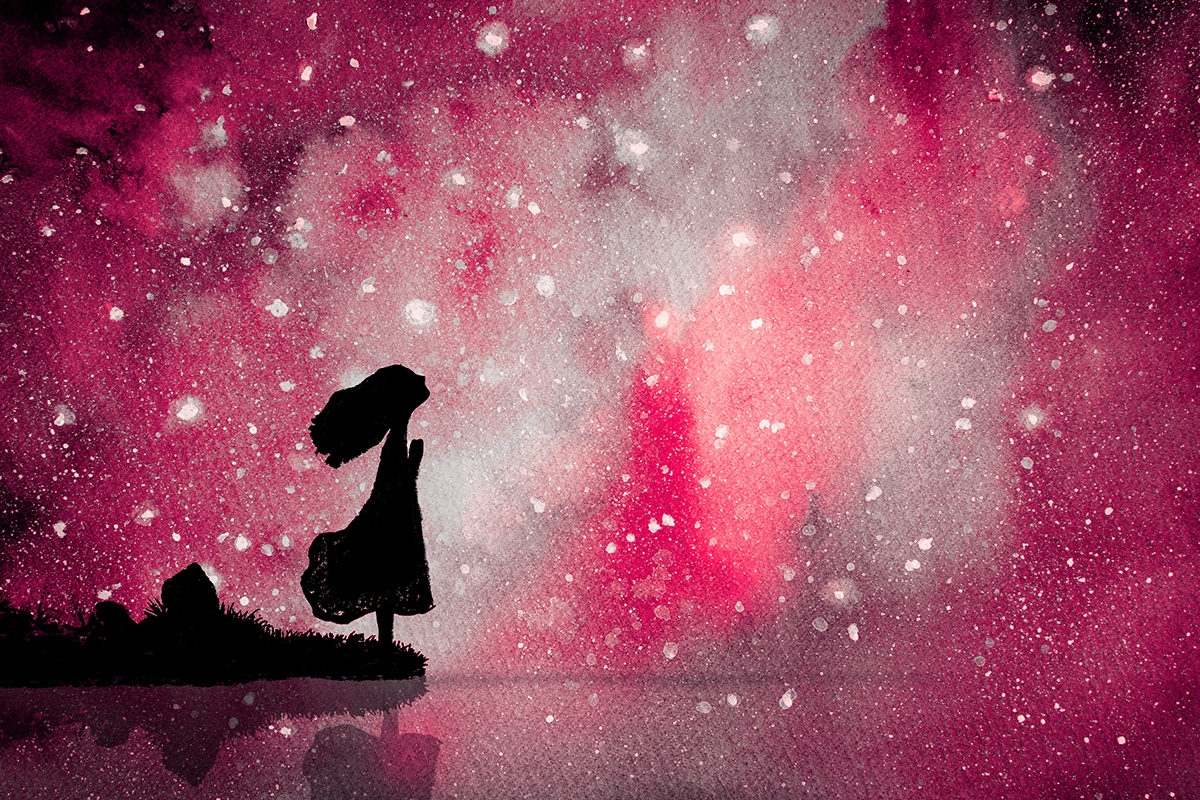Sitting alone in the waiting room of the ICU, I find myself watching a big, boisterous family seated just 15 feet away. They’re laughing and sharing videos and passionately debating politics. Meanwhile, tears quietly stream down my cheeks, forming two little puddles on my shirt.
Earlier that day, I was in a conference room with two ICU doctors, who told me that my dad may die today, and that I should call my family and make arrangements. I studied their faces. I had been talking to doctors in hospitals for the last decade about my dad’s prognosis after suffering multiple strokes and heart attacks, but none of them had ever looked this solemn before. I responded in the most human way possible, by making a joke about feeling like I was in a TV medical drama. They smiled back at me politely, but we all knew this wasn’t fiction.
I went into my dad’s room, and I said the kind of calculated goodbye you give when you’re not sure if you’ll ever see your father again, at the same time, being careful not to squash any last hope he might have for living. This wasn’t our first goodbye.
I went out into the hallway to make the dreaded phone calls to extended family. I was prepared for this moment — after all, focusing on logistics helps to keep my devastation at bay. In my best project manager voice, I explained the situation to our relatives over and over again. Like reading from a script, I asked all of them to book their flights and bring funeral clothes.
Back in the waiting area, I found myself staring in total disbelief at the family, who was sitting across from me. “How could anyone be smiling right now?” I thought to myself. I accidentally made eye contact with the youngest member of the family, and she noticed I had been crying. I quickly wiped away the tears from my face, but it was too late — she whispered something to her mother and pointed at me.
Her mother immediately looked over at me, her face expressing genuine sympathy. ”Oh, great,” I thought. “I really don’t want to do this right now.” But we did anyway.
She asked me if I was OK, and I begrudgingly told her what was happening. We talked for a few minutes, and then she paused and said: “As long as he’s still alive, there’s still hope.”
I politely thanked her, of course, while thinking to myself how childish that sounded. If modern medicine doesn’t have hope, then how could I?
Back in the ICU, my dad was now unconscious, and his blood pressure was rapidly dropping. “This is it,” I thought to myself. “It’s really happening this time.”
Then, a high-risk procedure was performed as a last-ditch effort to save his life — and, lo and behold, it worked.
By the evening, I had to peel my jaw off of the floor, as I watched my dad eat pudding and chat gleefully about how excited he was to see our extended family tomorrow. The doctors were similarly flabbergasted.
As I left the hospital for the night, I thought about the family from the waiting area, and I thought about hope, how a simple statement from a kind stranger — one that I had completely disregarded — was the wisest moment of the day. As Rabbi Jonathan Sacks once said: “Far from being simple or naïve, hope demands, creates, and is the expression of indomitable moral courage.”
There’s nothing easy about watching a family member repeatedly face death. After a while, hope can become distant, slippery — just too hard to grasp. Feeling beaten down by end-of-life care, hope too easily gets replaced with cynicism and emotional fatigue.
Maybe everything that happened that day was the result of highly competent surgeons, or maybe it’s all just a random coincidence. I’ll never know. The only thing I know is this: I may have been by myself in the hospital that day, but I was never alone. Hope is everywhere if we’re just willing to see it.









